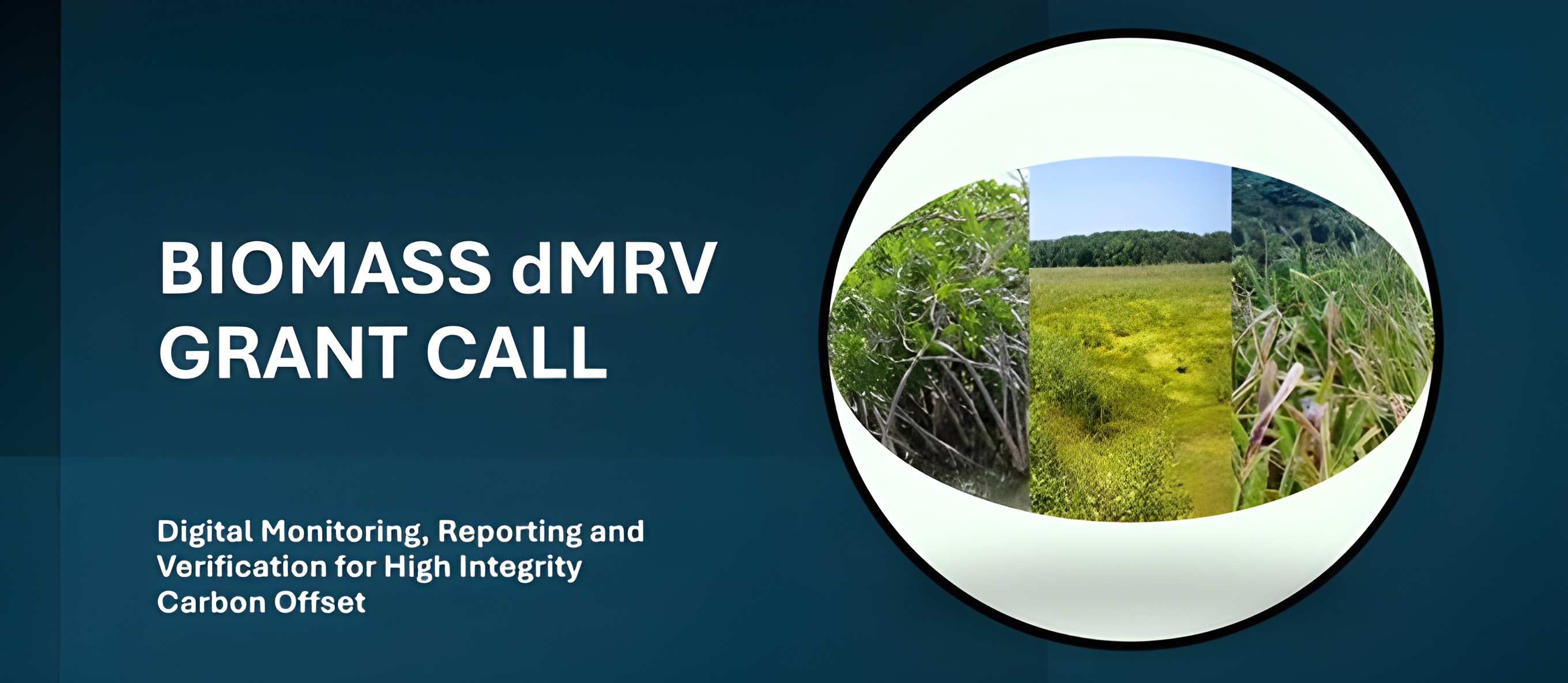STDP Thematic Grant Call (Biomass dMRV)

Key Details:
OSTIn’s Thematic Grant Call 2026 – Call for Letter of Intent (LOI)
Period of Application: 15 Jan 2026 to 27 Feb 2026, 1700H
Link to form: Letter of Intent Template & Submission
Grant Call Details
Program Intent
The Biomass Digital Monitoring, Reporting and Verification (dMRV) Grant Call supports Singapore’s commitment to achieving net-zero emissions by 2050 through the development of dMRV methodologies incorporating satellite remote sensing data/solutions.
This program aims to support Singapore’s strategic need to secure high integrity carbon offsets annually by 2050, while positioning the nation as a leading Geospatial Centre for Southeast Asia and the Equatorial Belt.
Strategic Alignment
This initiative directly supports Singapore’s national climate objectives by:
- Enhancing the integrity and transparency of carbon offsets critical to Singapore’s net-zero pathway
- Positioning Singapore as a leading Geospatial Centre for Southeast Asia and the Equatorial Belt
- Supporting sustainability agendas and sustainable development whilst creating economic opportunities in green finance and technology sectors
Target Ecosystems
- Green Carbon Systems: Carbon stored in terrestrial forests and vegetation across Southeast Asia, including above-ground and below-ground biomass in forests, plantations, and other vegetated areas.
- Blue Carbon Systems: Carbon stored in coastal and marine ecosystems, including mangroves, seagrass beds, and seaweed habitats.
Technical Requirements
- Proposals must demonstrate satellite remote sensing as the core technology for biomass monitoring and address measurable performance indicators including:
- Accuracy improvements in biomass estimation
- Temporal and Spatial resolution capabilities
- Demonstration of AI/ML model performance with validated datasets and uncertainty quantification
Eligible Applicants
- Primary Applicants: Local Institutes of Higher Learning (IHLs) and Research Institutes (RIs) are eligible to serve as lead applicants.
- Industry Participation: Industry applicants must partner with local IHLs/RIs as co-applicants. Industry partners* may include technology companies, carbon project developers, satellite operators, EO data providers and environmental consulting firms.
*International collaborations are encouraged but must demonstrate clear value to Singapore’s remote sensing capabilities, which should originate from Singapore.
IHL/RI Point of Contacts
- Agency for Science, Technology and Research (A*STAR): ng_yen_ting@a-star.edu.sg
- Nanyang Technological University (NTU): eugene.see@ntu.edu.sg
- National University of Singapore (NUS): emmilineang@nus.edu.sg
- Singapore Institute of Technology (SIT): joyce.tan@singaporetech.edu.sg
- Singapore University of Technology and Design (SUTD): wendy_ho@sutd.edu.sg
Proposal Requirements
- Applications must be submitted as a Letter of Intent following the prescribed template structure, consisting of a cover page (excluded from page limit) and a maximum 5-page response
Collaboration Incentives
Additional evaluation points will be awarded for:
- Partnerships with relevant stakeholders across the carbon credit ecosystem (e.g., project developers, registries, Validation and Verification Bodies (VVBs), etc.)
- Collaborations with research institutions from countries that have signed Article 6 agreements with Singapore
- Demonstrated clear pathways for commercial deployment within 3-5 years post-project completion
Submission Process
- Applications to be submitted electronically through the OSTIn website: www.space.gov.sg/resources/stdp
For enquiries on co-funding requirements, technical scope, application procedures, and eligibility, please contact OSTIn:
- Dr. Lim Yuan Liang @ lim_yuan_liang@edb.gov.sg
- Mr. Goh Justus @ justus_goh@edb.gov.sg
- Mr. Irving Seah @ irving_seah@edb.gov.sg

